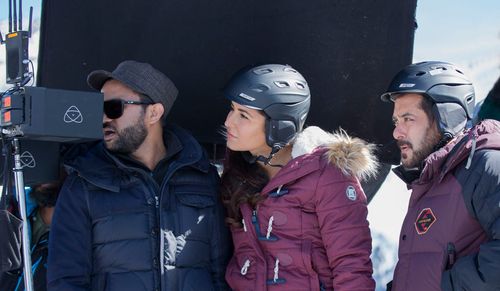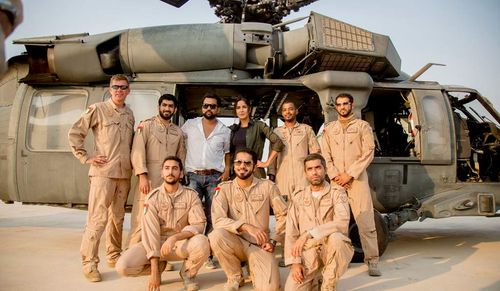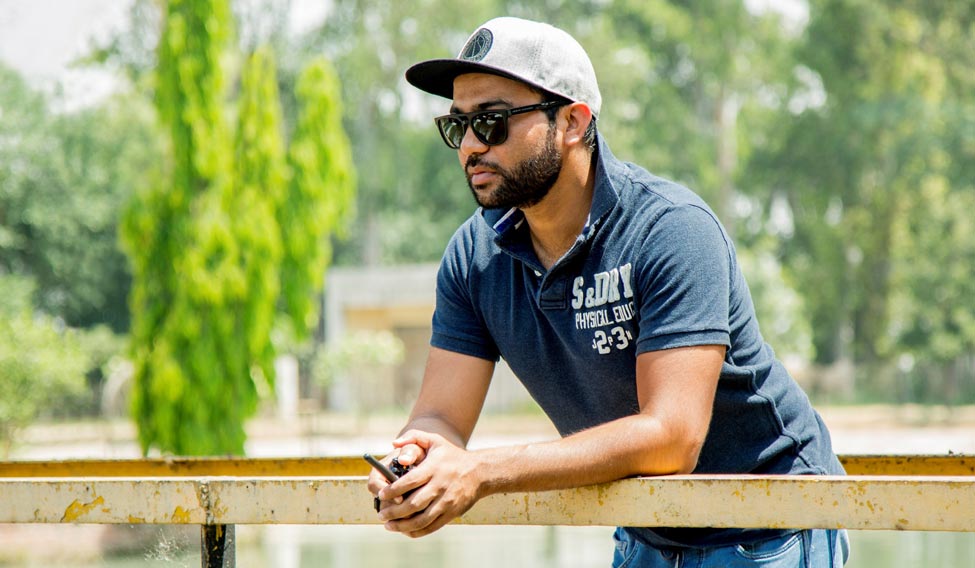Film lovers have been eagerly waiting for the last big release of the year—Tiger Zinda Hai, a sequel to the 2012 action-packed Ek Tha Tiger, starring Salman Khan and Katrina Kaif as Indian and Pakistani intelligence agents. With the two stars back on screen after five years, the story, inspired from a real life hostage situation of 46 young Indian nurses in Iraq, takes a leap of eight years as Tiger and Zoya take up a new mission of ‘rescuing the nurses’. The film’s director, Ali Abbar Zafar talks to The Week about the massive project shot in picturesque locations in Austria, Greece, Morocco, Abu Dhabi and India.
How did the idea of Tiger Zinda Hai emerge?
When I wrote this story, it was not supposed to be Tiger Zinda Hai. It was called 360 hours. It was a story of a rescue mission, featuring both Indian and Pakistani intelligence agents. So when Sultan got over, I got greedy. I wanted another film with Salman because he gets me a lot of box office hits (laughs). So, I went to Aditya Chopra and asked him if he remembered the story, screenplay I had shared. He said 'yes' and I said I want to convert it into a Tiger film and adapt it into a Tiger franchise. Within a week, I adapted the entire script as a sequel to Tiger. I narrated it to him and he said it works like ‘magic’. Because as soon as you take two people whom you already know, it becomes a family film. Tiger and Zoya were lovers and now after eight years, how their life has changed. It became a more relatable story and the dryness of the text went off. Later I went to Salman and he loved the title. Within 20 minutes he told me: “Ali, whether this is a sequel or not I am going to do this film because the story is the hero here which is bigger than Tiger or Zoya”. Katrina, too, reacted in the similar way.

Was Kabir Khan (who directed Ek Tha Tiger) involved in this project?
No, he wasn’t involved but I shared the story with him. I went to Kabir and told him that I have this story and that this is what I want to do with the sequel. He was very very supportive.
The plot of the critically acclaimed Malayalam film Take Off, also centres around a rescue mission to save abducted Indian nurses from Iraq. Are you worried about the comparisons being drawn?
There will definitely be a lot of comparisons between the two. I have heard it is a brilliant film. I want to watch it. But these are two very different films. The Malayalam film is very true to what had happened, whereas I have completely fictionalised the film. It is the same difference between Dangal and Sultan. Dangal was a very real film based on wrestling. Sultan was a completely fictional film. Both films, however, created an impact.
Were you careful about the way you project Salman since Tubelight didn’t work too well?
It all comes from the story. Even in Sultan it was very challenging for him as an actor to do a role where he was not in his best shape. He wasn’t sporting his quintessential good looks; he looked more like a recluse. But there were these great wrestling sequences which made people emotional because the story is very emotional. Tiger Zinda Hai is also a very emotional story. There is lot of action and his fans like that. I like him to be presented in a way where his fans will not be disappointed.
What attracted you to choose the plot of the abduction of nurses?
That whole incident happened at the time when our Prime Minister Narendra Modi came to power (2014), and the government introduced Beti Bachao, Beti Padhao campaign. These nurses were rescued through negotiations, with not even a single bullet being fired. Their story of survival is incredible. I thought, what if things were different and there was a team that goes to get those nurses out. How will that mission look like? For me, it was a very inspiring story at a very global scale because it was covered by all the international news channels. The film is not jingoistic, it is patriotic. It gives you a feeling that nothing is bigger than your country, its honour is most important. It is a human interest story.
There were no guns involved in reality but then why do we see guns in your story?
As a filmmaker you may get inspired by just the headlines. If I just replicate what actually happened, then it will be a documentary. My expertise comes in when I create something that doesn’t exist. Sultan was also based on lot of real life events that happened in wrestlers’ lives but it is a complete fictional character. As filmmakers, we can only create stuff and that gives us satisfaction. I researched on the lives of these nurses but I didn’t pick up any of that story. If I get into that then I will have to do justice to each and every story. So I created my own group of nurses and gave them their stories so that I could create characters which will be mine and nobody will take offense to that.
What were the challenges in front of you?
Tiger Zinda Hai is not only about the nurses. They are a very important chapter but the film also deals with local Iraqis. I am also dealing with the way the Indian intelligence works and what goes behind training agents. When you go for a mission, how do you pick up a team, can one man do it or do you need more people? How does the asset network of spies work sitting here in India? Does every country has its network of RAW agents? Are they all Indians? The approach of my film is more from a spy network rather than just the nurses. Nurses are just the cause. They are the emotion of the film.
We worked on the minute details. There are multiple characters. The villain is also very important. He gives you the perspective about what happened on Ground Zero. For example, when you read a news in Al Jazeera, it will be very different from the news in CNN. So what do you believe in? There is a lot of contemporary writing in the film. That is what excites me the most. During my research, I met new people and got extremely contradictory perspectives.

What kind of research went into it, and how did you go about casting for your film?
We did an extensive research where I spoke to people in Iraq, who were involved in the operation to understand what I can use and what I can fictionalise. When you do a film based on an espionage set in Iraq where you can’t shoot, you have to be very sure that each and every detail of how the people look, how they talk, what they eat, what will be the situation at Ground Zero has to be documented. We shot in Abu Dhabi because we wanted certain military equipment which is not available in India. I would never get the facial texture of an Iraqi looking man, or a child, or a woman here, so we cast people from Iraq. Most of the casting is international. Most of my FBI or CIA officers are from the US. My main villain is an Iranian who stays in Abu Dhabi.
These days people easily take offense to films that are based on real life incidents particularly since you have fictionalised the story. Do you expect any trouble post release?
We have been saying from day one that it is a fictional piece. For example, Border was a fictional story that revolved around a real war. Lakshya, LoC are all fictional pieces. Then Gadar, Garam Hawa... were films on partition.
But those times were different. Now, with so much polarisation happening, and even at the best of times, tackling a film with Indian and Pakistani protagonists can be tricky. How did you handle it?
Sultan was completely fictional but lot of people came up to me saying that the protagonist looks like a real life wrestler because I had treated him like one. I feel, when a film falls short in telling the story then there is backlash. Lagaan is a completely fictional film. Do you think today anyone will say and wonder whether the cricket match happened? But British was ruling us, so it was possible. And the film is so good that I am not even thinking about reality, I am just enjoying the film.
There is no risk in anything you as long as what you are trying to say works with the audience. In the end, it has to be an entertaining, relatable film. And Tiger Zinda Hai is a very people-centric story, it is not political at all. The idea is that when there is a fight between right and wrong, what is at stake is humanity. And there’s nothing bigger than humanity. As a filmmaker and a creative person, I need to be sensitive to what is happening around me. I always personally think that no matter what happens, everything can be solved through dialogue. We should not take ourselves too seriously. At the end of it, it is a film. We work because of our conviction, and at the same time it should not offend anyone.
What is your take on Padmavati? Are filmmakers getting discouraged to make films that they want to?
No, not at all, we are not discouraged, we are a very empowering film industry. When situation like that arise, one should sit across the table and talk about it, and they should talk at the right time rather than pulling the threats for a long time and stretching it to the point. There are governing bodies to take final decision. What is right will happen eventually.
How was it working with Salman second time on?
Salman is funny as always, he keeps pulling my leg whenever he can. During Sultan, we were getting to know each other but this time we were more comfortable. I kept pushing him harder, and he would complain. But we enjoy working together.





